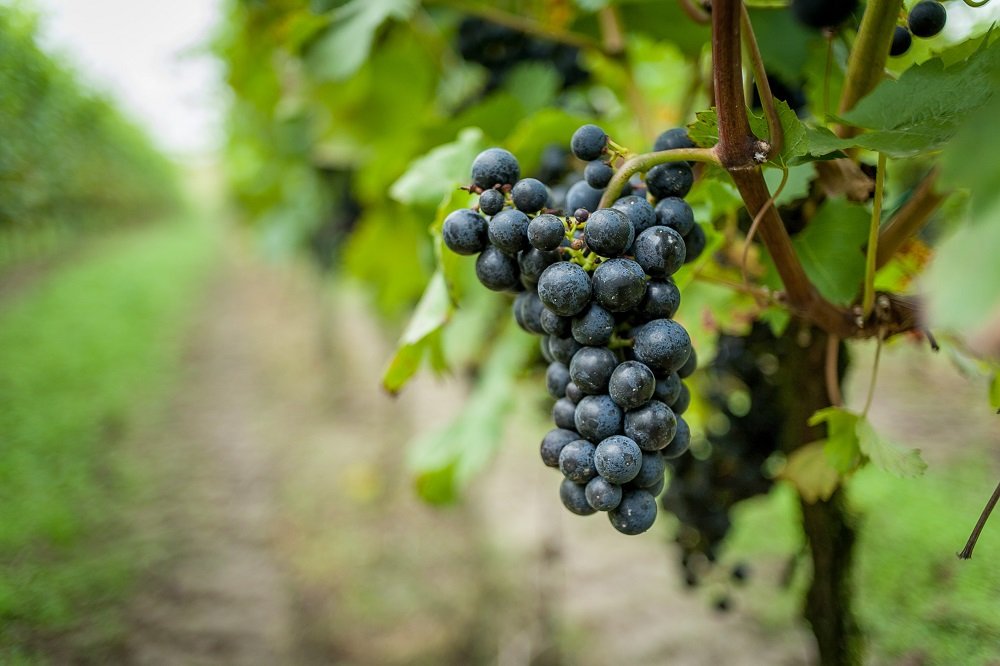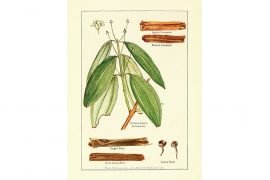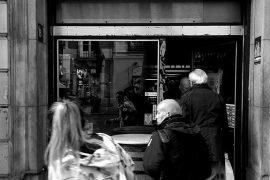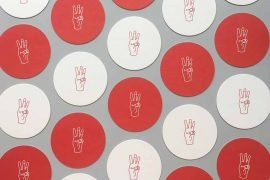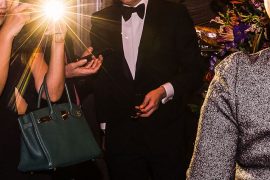[dropcap letter=”W”]
ine has always been there. Since immemorial times. The pharaohs of Ancient Egypt already used it in their religious ceremonies and rituals -remains have been found in some tombs- and in Greece the tendency was to consume it diluted with water. Not to mention the historical Bacchanalia of the Romans or the religious rituals of Christianity. Thousands of years ago, the fruit of the vine is part of our daily lives as human beings, although it is now that it seems to live through its golden age. The wine market produces around 11,000 litres of wine per year and generates an income of more than 30,000 million euros according to the latest report of the International Wine Organization (OIV).
Barcelona is a clear example of the democratization of wine. The traditional wineries have become new centres of pilgrimage. They have gone from having a recurrent, sometimes scarce clientele, to become a meeting point for friends and families
It is not a question, however, only of figures. If the wine lives today a moment of maximum splendour is because its consumption has been democratized to levels never seen before. The middle class has endorsed a drink that until relatively recently felt remote by tradition and prejudice. For centuries, wine was reserved for political, religious and economic elites, granting it a place inaccessible to the majority. Only the privileged and great experts in the field could enjoy a good glass of wine. The most disadvantaged enjoyed the roughest and most basic wines, so the snobbery of many also caused the wine to stay away from the majority. For a few decades, fortunately, this historical perspective has been modified to a present in which wine has become a universal drink.
Barcelona is a clear example of the democratization of wine. The traditional wineries have become new centres of pilgrimage. They have gone from having a recurrent, sometimes scarce clientele, to become a meeting point for friends and families. They compete with those newly created and with bars that offer the possibility of drinking single glasses of wine, more and more numerous in the city. Few are those who at this point have never made a wine tasting or those who do not talk about types of grapes or designations of origin that go beyond the classic Rioja or Ribera del Duero, the first in Spain to start the popularization of their wines. Nearly everyone has a favourite wine or denomination and that, in the era of overexposure and social networks, often turns us into prescribers or experts without really being so. Here one can declare myself guilty of the charge: I like to recommend Priorat wines because they are my favourites -as if I had tried the rest of D.O. existing- or broths with a high proportion of the variety of Syrah grape without more arguments than my personal tastes that, although valid, are not those of the whole world. So, crossing with Jean-Michel Guiraud, director of the oenological centre of Avignon, made me think about the widespread ignorance that exists around wine, now that we all consider ourselves almost experts in the matter. The two-hour wine tasting of the Rhône became a master class on how to enjoy even more of our favourite wines.
“The best wine will always be the one you like” says Guiraud, who, at the Carré du Palais, seeks that each person find the wine that best suits his / her personality and learn to enjoy it to the fullest
THERE IS NO BEST WINE
Jean-Michel Guiraud is not the typical sommelier. He runs away from giving lectures or judgments, knowing that the wine industry has suffered from it for a long time. “The best wine will always be the one you like”, says Guiraud who, at the Carré du Palais, seeks that each person find the wine that best suits his / her personality and learn to enjoy it to the fullest. Therefore, it is growing the interest of knowing what we do not do well when we open a bottle of our favourite wine.
It is not about of becoming sommeliers apprentices, or even experts -more and more courses and related studies exist, in that sense- but to speak with some knowledge the next time we have to meet around a good table and a good wine with friends or family. If we are going to talk about wines, let’s do it, at least, with property.
ABOUT URBAN LEGENDS AND PAIRING
Just like for everything that has to do with gastronomy and personal tastes, in wine one should never impose anything. I merely advise it from the respect and the humility and it is, from there, from where Jean-Michel Guiraud recommends me to try to pair a good cheese not with red wine but white. At first, it strikes me. I had always been familiarised with the idea of maximum pleasure pairing one of my favourite cheeses with a glass of good red wine, relaxed background music and a time of literature in solitude. “If it’s a very strong cheese or blue, definitely. But if it is not one of those cheeses, try a good white”, advises before pointing out that in the Iberian Peninsula we associate cheese with red wine for production and consumption issues. We have always been rather producers of reds than whites, and that leaves an imprint.
Not to mention, he tells me, of the loss of prestige in which the rosé wine still lives. It is always referred as a wine without body, summer-like and even feminine. Nothing to do with reality. These are only prejudices. Legumes or raw meats and fish marinate perfectly with a good rosé. If it is of high minerality it will be the best travel companion for ceviche or sushi since it will allow you to enjoy both without masking flavours.
TO DECANT OR NOT, THAT IS THE QUESTION
If the proper pairings should always be taken as a reference and not an absolute truth, this is not the case when opening a bottle and serving it. “The wine should always be aerated before being served”, the Frenchman tells me. If it is a young wine it will be enough to open the bottle about twenty minutes before lunch, dinner or special occasion for which we bought the bottle. If it is an older wine, the time of oxygenation will always be higher and should be around an hour and a half before, and whenever possible in a decanter.
If it is one of those wines that we keep for special occasions, having between 10 and 15 years of life, we should open them at least half a day before, in order to enjoy it in all its splendour and turn it into one of those “wines of conversation”, when everything flows and nothing matters, except the good company and having the glass always full. Important, always with a touch of cold.

